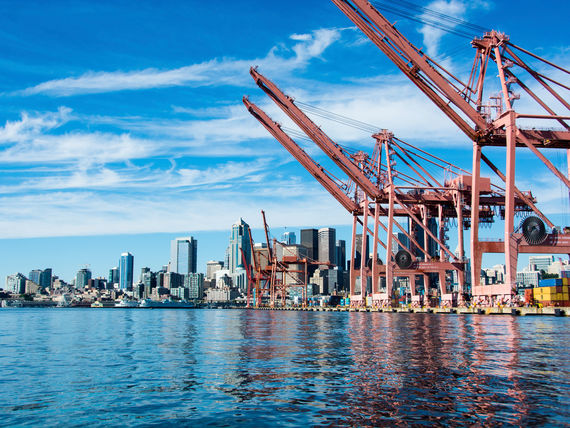APM Terminals backs off from selling facilities at Pipavav Port, JNPT

December 5, 2017: APM Terminals Management BV, the container port unit of Danish shipping giant AP Moller-Maersk Group A/S, has backed off from an exercise to sell its facilities at Pipavav in Gujarat and Jawaharlal Nehru Port Trust (JNPT) in Maharashtra, according to top executives at two local firms who participated in the bidding process.
“We looked at the two facilities for a potential acquisition. But, APM Terminals decided to put it on hold,” BVJK Sharma, Joint Managing Director and Chief Executive Officer of Sajjan Jindal-led JSW Infrastructure Ltd, told BusinessLine.
“We did due diligence of the two facilities. However, APM Terminals withdrew the process without assigning any reasons,” Rajiv Agarwal, Chief Executive Officer of Essar Ports Ltd, told this paper.
Adani Ports and Special Economic Zone Ltd (APSEZ), India’s biggest private port operating company, was the third bidder in the fray for the two facilities. The sale process was managed by HSBC.
Port industry sources said that a potential sale of the two facilities was beset by regulatory problems.
APM Terminals which holds a majority 43.01 per cent stake in Mumbai-listed Gujarat Pipavav Port Ltd (GPPL) can run the port only for 10 years because the 30-year concession agreement for the facility ends in 2028. Uncertainty over extension of the concession period beyond 2028 was a concern for the bidders, the industry source mentioned earlier, said.
The Gujarat Maritime Board (GMB), the agency tasked with the oversight of ports owned by the State government, has indicated that Pipavav could be re-auctioned when the original concession period ends in 2028.
“With the Supreme Court verdict on adopting the auction route for selling natural resources, including telecom spectrum, no one in the country will have the guts to renew the concession agreement just like that,” the industry source mentioned earlier said. “It will have to be auctioned and there will be many bidders looking to grab such fully-developed facilities,” he said.
APM Terminals has a 74 per cent stake in Gateway Terminals India Pvt Ltd (GTIPL), India’s single biggest container terminal by volumes loaded, accounting for about 45 per cent of JNPT’s total container volumes and approximately 20 per cent of India’s total container traffic.
TAMP rate cuts
In the 11 years since starting operations, GTIPL has been subjected to two rounds of rate cuts by the Tariff Authority for Major Ports (TAMP). In March 2010, TAMP reduced rates by 10 per cent and followed it up with a steep cut of 44.28 per cent in February 2012.
The 2012 rate cut was stayed by the Mumbai High Court on a petition filed by GTIPL. The court also allowed GTIPL to levy rates that prevailed prior to the reduction till the case is decided.
If GTIPL loses the case, it will have to refund more than ₹1,500 crore to customers as excess collected since February 2012.
The terminal is operating under the rate setting guidelines issued in 2005 which has been dubbed as “flawed” by the industry lobby group Indian Private Ports and Terminals Association (IPPTA) of which APM Terminals is a member.
IPPTA has been lobbying with the government and separately through a petition in the Delhi High Court to allow terminals covered by the 2005 norms to move to a more liberal rate regime that came into force in 2013 for projects bid out by the government since then.
Re-bidding
The Shipping Ministry has, in turn, suggested that the terminals covered by the 2005 rate guidelines should be subjected to re-bidding to discover the price bid afresh as the shift to a de-regulated 2013 rate regime would fetch higher revenue for the terminal operators which need to be shared with the government-owned port trusts.
The terminal operators will have the right of first refusal to match the highest revenue share price bid placed during the re-bid and continue running the terminal. The plan, though, is not acceptable to terminal operators such as GTIPL.
Source: The Hindu Business Line


